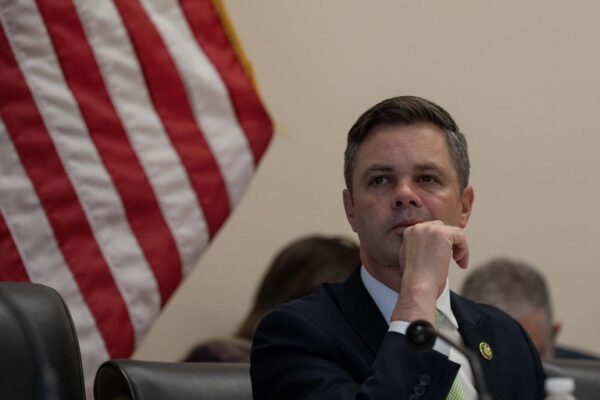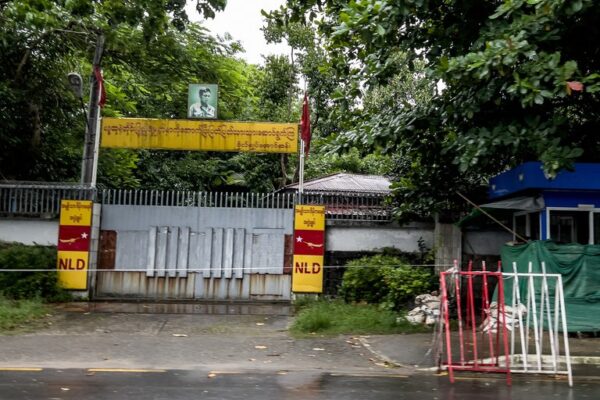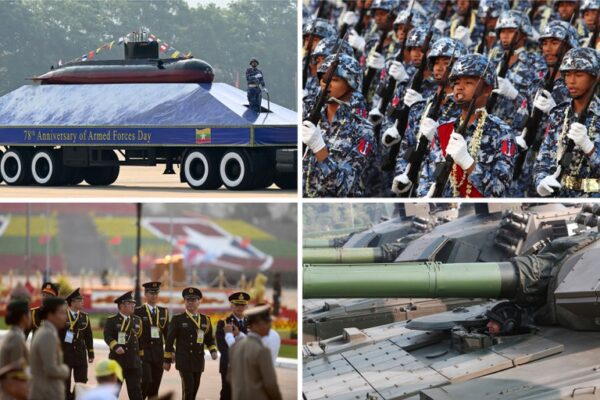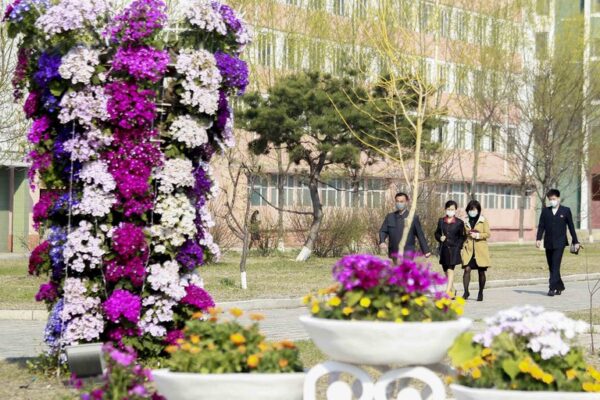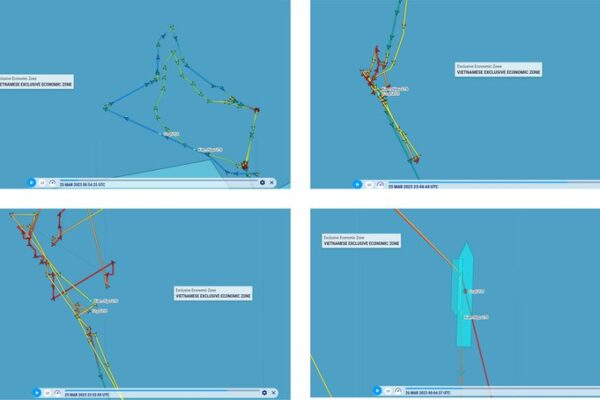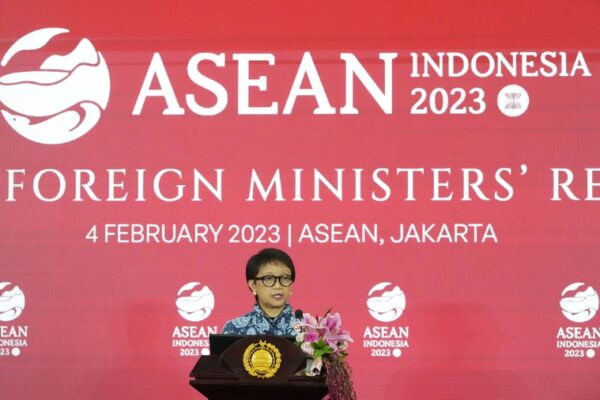
Interview: Indonesian special office to ‘steer ASEAN’s efforts’ on Myanmar
U.S. State Department Counselor Derek Chollet recently returned from a trip to Southeast Asia with stops that included Bangkok and Jakarta. During his visit to Indonesia, Chollet spoke with officials about their country’s role as this year’s chair of the Association of Southeast Asian Nations, or ASEAN, and the establishment of a special office within its foreign ministry to focus on the political crisis in fellow bloc member Myanmar. At the end of January, Chollet described Washington’s goal as being to “foster conditions that end the current crisis” in Myanmar and return the country to “the path of inclusive, representative multiparty democracy.” Amid frustration over the lack of progress in Myanmar and ASEAN’s handling of the crisis, Chollet claimed that sanctions leveled against the junta for its violent repression of the opposition “have had some effect,” reducing its sources of funding. But he acknowledged that more needs to be done, including ending the “steady pipeline of arms” that continues to enter the country and which the junta has used against its people. Chollet sat down with RFA Burmese’s Ye Kaung Myint Maung on Monday to discuss how the United States is working to achieve its goal in Myanmar both unilaterally and through cooperation with partners in the region. The following interview has been edited for length and clarity. RFA Burmese: What can you tell me about your trip to Southeast Asia last week? Chollet: I was able to talk to our partners in Indonesia about their ASEAN chair year and some of their aspirations for that year. They have established a special office inside the foreign ministry to focus on the crisis in Myanmar and help steer ASEAN’s efforts when it comes to addressing the crisis in Myanmar. They have named a very senior diplomat to lead that office. Someone who is very well known to us here in the United States … I had a chance to speak with him as well as Foreign Minister [Retno] Marsudi about the situation in Myanmar. And some of their thinking about how they’re going to try to achieve some results. So we talked about all sorts of issues related to the crisis, whether it’s our work to help provide humanitarian assistance to the refugees in and across the border from Myanmar into Thailand to ways that we’re going to work together with ASEAN to try to continue to pressure the junta, to further isolate them and to do what we can to support the democratic opposition inside Myanmar. RFA Burmese: So what would be the [role] of that office in Indonesia? Chollet: They are looking to help coordinate efforts on behalf of Indonesia for ASEAN in this chair year and it’s including trying to lead the diplomatic efforts that ASEAN is undertaking and implement the five point consensus [agreed to in April 2021 at an emergency meeting to end violence in Myanmar], to setting up a process to provide greater humanitarian assistance through the [ASEAN Coordinating Centre for Humanitarian Assistance] into Myanmar, to coming up with a work plan for how to use the coming year with key leadership meetings with ministers meetings and, of course, eventually with the summit later this year to try to get some important decisions made through ASEAN about Myanmar – all in the service of trying to implement the five point consensus. Indonesian Foreign Minister Retno Marsudi, shown in this file photo, spoke with US State Department Counselor Derek Chollet about the situation in Myanmar. Indonesia is the current chair of Association of Southeast Asian Nations (ASEAN). Credit: Associated Press RFA Burmese: What updates do you have on U.S. assistance for the people of Myanmar as mandated by the Burma Act? Chollet: We are working every day to implement the measures of the Burma Act. And we are one of the largest, if not the largest, donor of humanitarian assistance to Myanmar. We work intensively through our embassy in [Yangon] to provide humanitarian assistance and also to provide non-lethal assistance to the pro-democratic opposition and help them on everything from planning to budgeting to administration, particularly in areas which are now about 50% of the country that fall outside the [junta’s] control. So we find it very important that we have this support, bipartisan support, on Capitol Hill and are regularly in touch with our Congress on the way forward in implementing the Burma Act. RFA Burmese: The establishment of the special office – do you think it’s significant and why? Chollet: Previous chairs of ASEAN, Brunei and Cambodia, [have acted as] foreign ministers and special envoys … They were worried about managing the ASEAN agenda across the board. They have to participate in many meetings all around the world, in addition to their ASEAN duties and in addition to their concerns about Myanmar. So I think it makes a lot of sense to have this special office. It’s ensuring that there is high-level focused attention on the situation inside Myanmar. And they’re good partners of the United States. Russian and Chinese influence RFA Burmese: You said, during your trip, that Russian arms support for the junta is destabilizing the entire region. So what can you tell me about what the U.S. is doing to counter that Russian support? Chollet: We are making very clear to all of our partners that that support is unacceptable. We are also trying to make it harder for the junta to get the resources to acquire weapons that are fueling its war machine. Just last week, on Friday, when I returned from the trip, the United States announced another round of sanctions against several individuals and entities inside Myanmar that are associated with its acquisition of arms and particularly air power. Because what we’re seeing is the junta is increasingly using air power to go after the opposition because they’re finding that they’re less successful when they’re using ground forces. Myanmar junta leader Snr. Gen. Min Aung Hlaing sits in the cockpit of a newly acquired Russian SU-30 SME…

